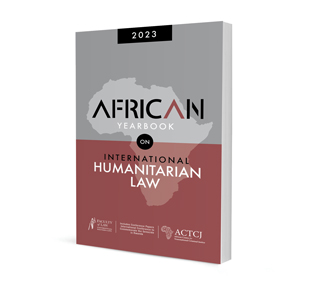
ARTICLE
Claiming genocide to justify aggressive wars: The case of Russia’s invasion of Ukraine and Rwanda’s expansionism in the Great Lakes region
Author: Etienne Mutabazi
ISSN: 2521-2621
Affiliations: Adjunct Senior Lecturer, University of Iringa and Independent Consultant based in Johannesburg, South Africa
Source: African Yearbook on International Humanitarian Law, 2023, p. 20 – 48
https://doi.org/10.47348/AYIH/2023/a2
Abstract
In February 2022 the Russian Federation launched special military operations in Ukraine, alleging that the latter was committing genocide against the Russian-speaking population in the Donetsk and Luhansk regions, also known as ‘the Donbas’. This led Ukraine to file an application instituting proceedings against the Federation at the International Court of Justice for provisional measures to suspend such operations. It also denied Russia’s accusations of genocide. In the 1990s, Rwandan exiled Tutsis launched an attack to recapture power in their country, resulting in genocide. After lengthy court proceedings, the International Criminal Tribunal for Rwanda determined that genocide had been committed against the Rwandan Tutsis. Thereafter, and despite the Tribunal’s thought-through decisions and judgments, Rwanda’s President Kagame undertook a deceptive campaign, warning of impending genocide in Burundi in 2015, prompting the African Union to decide to deploy troops to prevent such atrocities. Burundi denied any threat of genocide. Also, since 1996, Rwanda has, on numerous occasions, intervened militarily in the Democratic Republic of Congo to, allegedly, prevent genocide against the Banyamulenge, also of Tutsi ethnicity. While international judicial institutions have laboured to ascertain the elements that constitute genocide, irresponsible claims of genocide continue to capture attention. Based on the relevant literature that addresses this burning issue, and some decisions and judgments of the United Nations ad hoc tribunals for Rwanda and the Former Yugoslavia, as well as those of the Extraordinary Chamber in the Courts of Cambodia, this article looks beyond the claim of genocide in the ongoing armed conflicts in the Great Lakes region and between Ukraine and the Russian Federation. The reality is that this claim is made by political leaders in a bid to serve their political agendas, despite legal efforts to clarify the legal requirements for a crime to be characterised as genocide. The article recommends the adoption of a supplementary convention that would reemphasise the requirements that any claims of genocide must meet to prevent its abuse and misuse, including in political discourses.